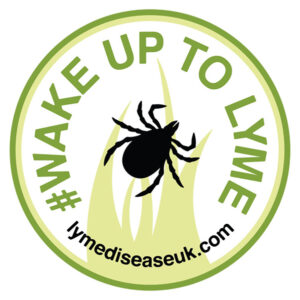
Putting the spotlight on Invisible Illnesses
At Pivotl we’re helping our clients use data to become more productive. Add this up over time and hopefully we’ll make a meaningful contribution to making the economy and public services more productive. This matters. At a macro economic level healthy productivity growth generates opportunity, improves social mobility and funds better public services.
It also matters hugely at a personal level. As adults, most of us have better physical and mental health when we ourselves are economically productive. Being economically active means we can provide for ourselves, provide for others and be fully engaged members of society with all the upsides that involvement in community brings.
But, of course, entry into an economically fulfilling life doesn’t start from the same place for everyone, with so many groups of people facing barriers and discrimination in the workplace. Since founding my first business 10 years ago I’ve had my eyes opened to the changes that can be made to support greater inclusion that I simply wouldn’t have noticed previously given my background of relative privilege.
Discrimination can be found anywhere, but there’s a group of people – and it’s a large and growing group – that is poorly served by almost every organisation and public body, including employers, the health service, researchers, schools and politicians. This group receives very little attention or help and yet their barriers to economic participation are immense.
I’m talking about people who suffer from Invisible Illnesses.
Invisible Illness or Disabilities is a broad term but loosely it covers people suffering from a range of conditions that cause significant physical and mental health problems, the symptoms of which are not visually obvious to wider society. Data is hard to come by but in the US it is thought that about 10% of people suffer from Invisible Disabilities and it would seem logical to assume that the legacy of Covid has left even more people in this invidious situation.
My experience of this is very personal. In 2018, just around the time we sold our first business, my eldest daughter was bitten by two ticks, and consequently has spent the last five years in a state of chronic ill health.
Given my background, people might quite justifiably say to me that I wouldn’t recognise discrimination if it hit me in the face – well, that was before Molly’s tick bites – and I now have first hand experience of the worst type of discrimination and exclusion imaginable. This is not only through seeing how my daughter has been treated but also through my role as a Trustee at Lyme Disease UK where all the volunteers and supporters have been terribly let down by the health system and paid a huge price in terms of their access to employment opportunities.
As a result of this I’m so moved and pleased that the board and co-founders of Pivotl, having witnessed Molly’s plight, are enthusiastic to do our own bit to try and help others who suffer from Invisible Illnesses. We have already put in place some long term actions – allocating a certain amount of equity to relevant charities, exploring options for people in these situations to work with and for us and, finally, each year we will financially support a relevant fundraising cause.
I’m also so, so happy that this year we are sponsoring 4 brave (or foolhardy?) men to complete the Talisker Atlantic Rowing challenge. One of the rowers, John’s daughter Yasmin, has also been cruelly afflicted by Tick Borne Disease (Lyme isn’t all they carry), and money from the row will be going to a number of related charities including Lyme Disease UK.
Specifically we are sponsoring the boat’s autohelm – an automated self steering device which is the perfect fit for a data focussed company like Pivotl. We look forward to following them, supporting them and sharing their stories as we build up to their launching off in November.
The controversy and lack of support for Lyme and other Invisible Illnesses is partly caused by poor, inaccurate and inconsistent use of data – a topic that is close to our heart at Pivotl.
I’ll therefore be following up on this blog post with perspectives on the black box of controlled clinical trials, the danger of using the absence of data as evidence of absence and exploring the potential for greater use of aggregated “Anecdata” in clinical decision making. I’m also exploring the possibility of building a Data Observatory for Tick Borne Disease in the UK – more to follow shortly.
I look forward to continuing the conversation around Invisible Illnesses – obviously, there’s always more to do but the direction of travel is promising and Pivotl’s founders want to ensure we continue to do our bit to contribute.

Data is hard to come by but in the US it is thought that about 10% of people suffer from Invisible Disabilities





